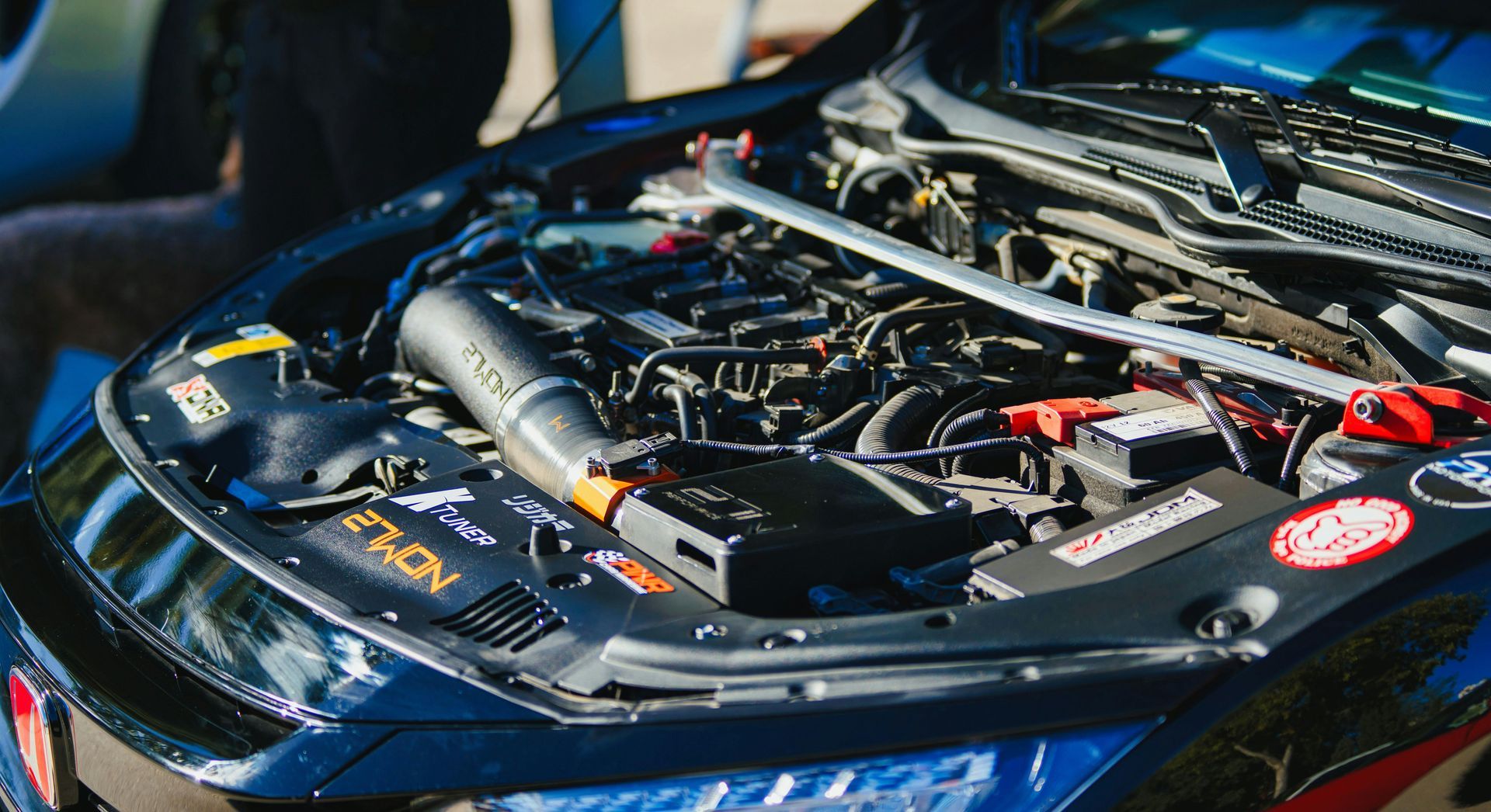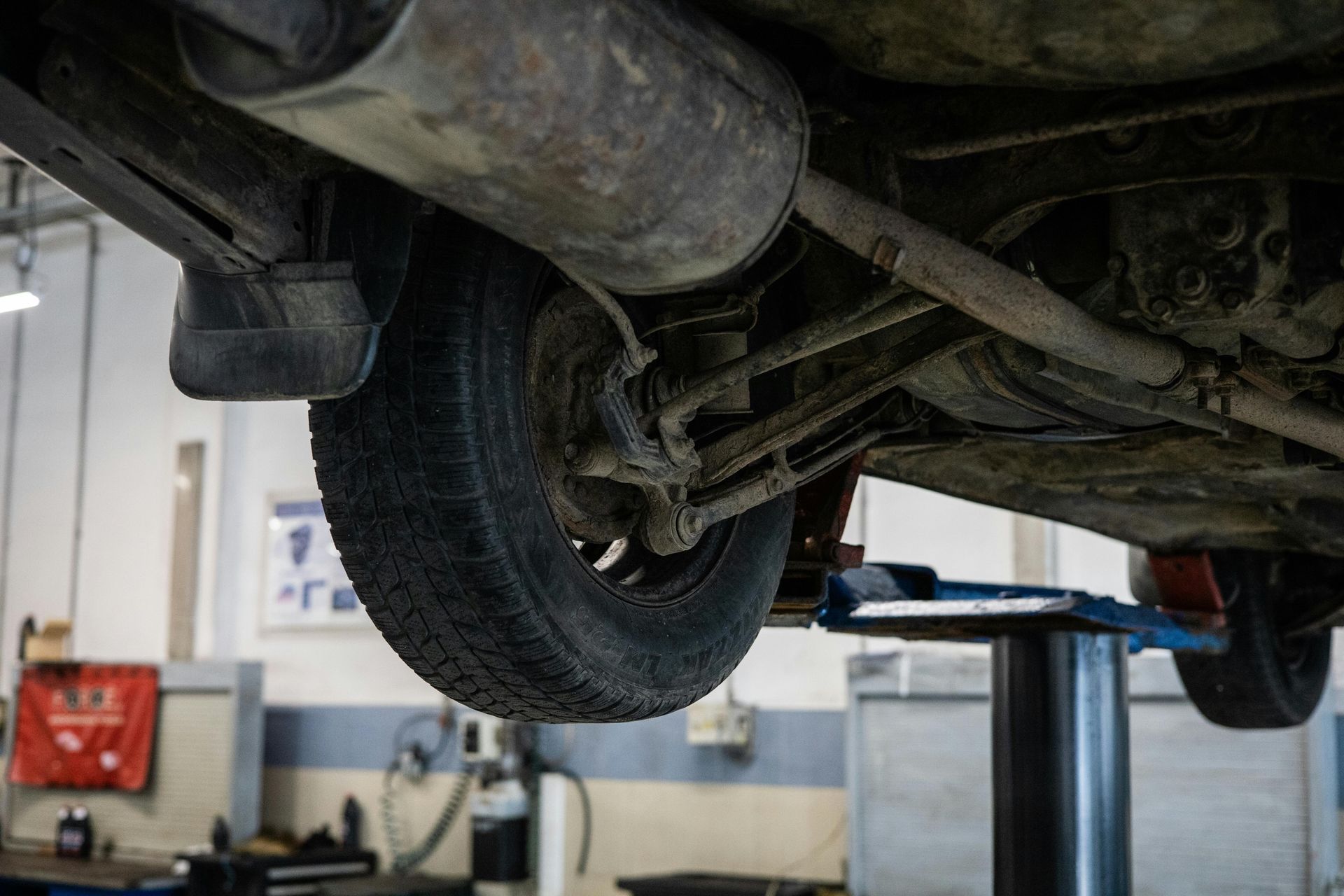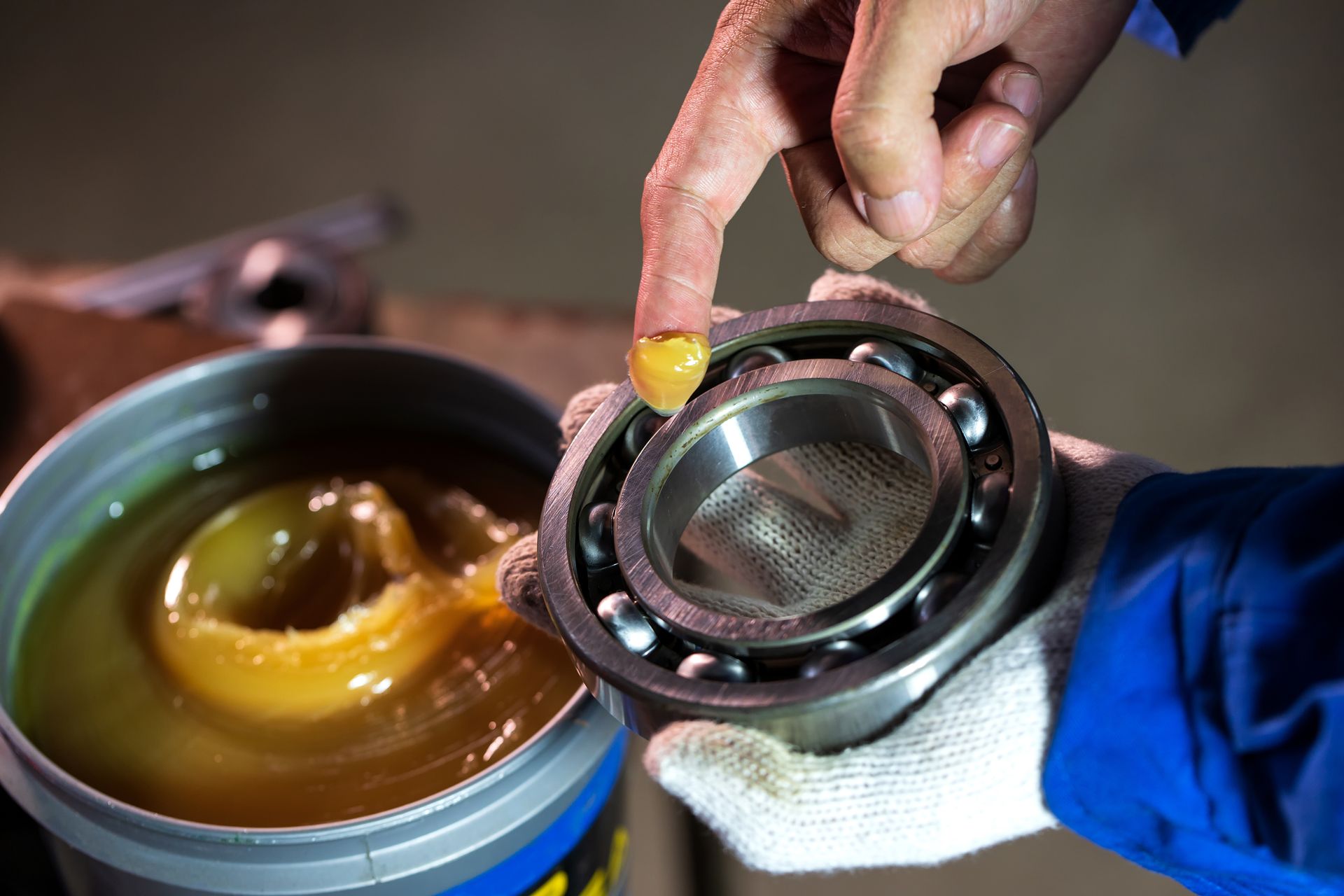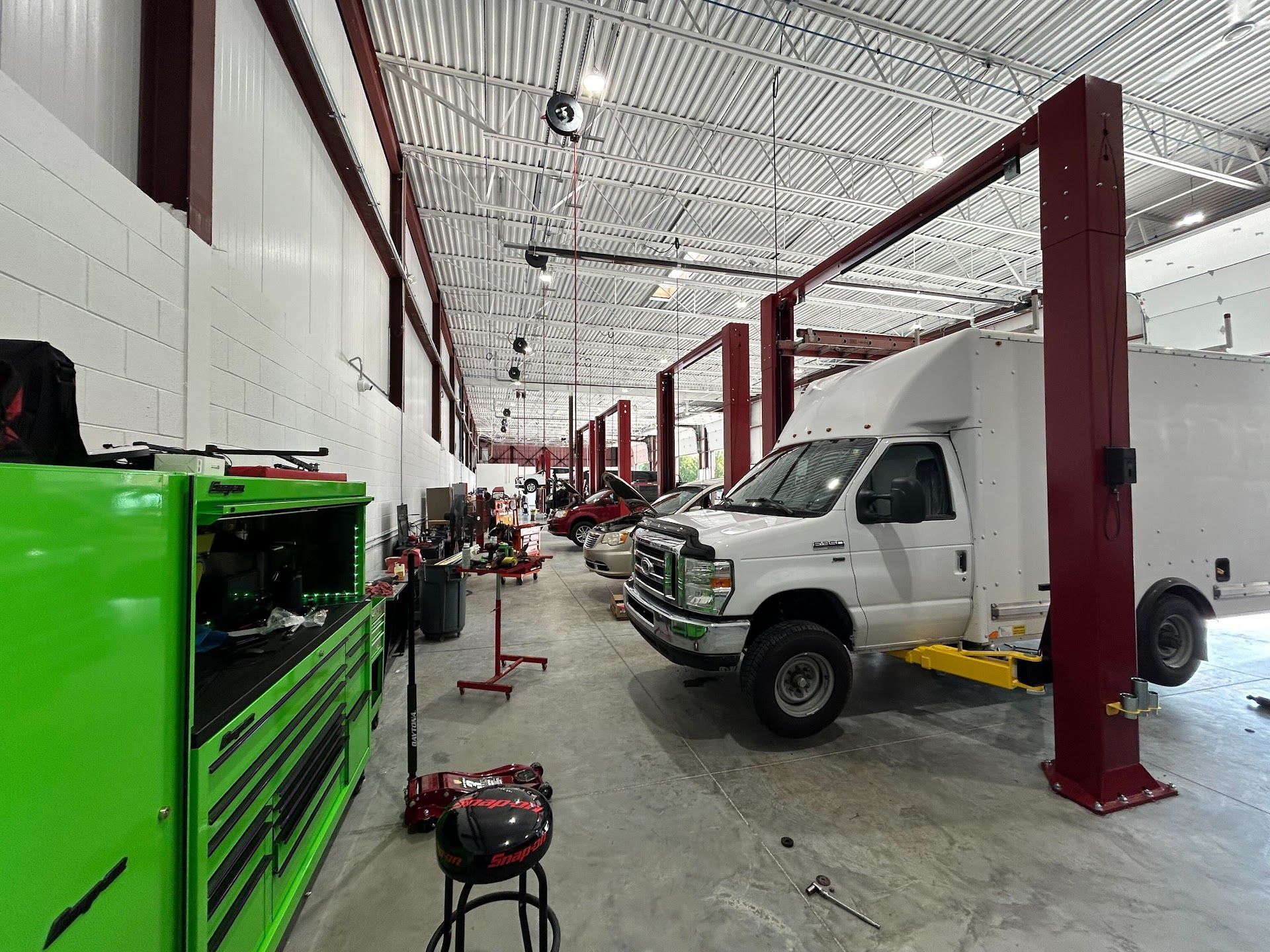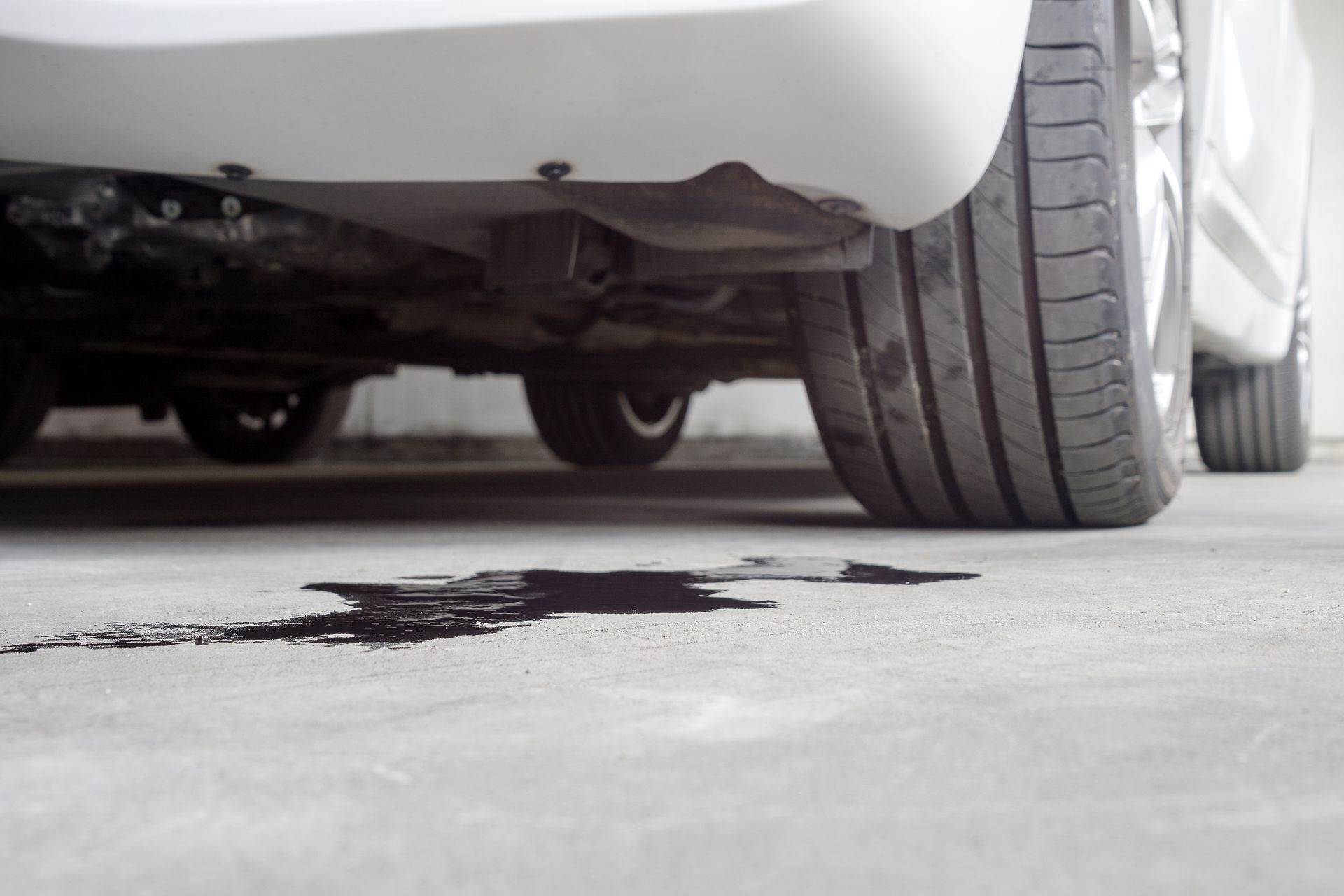AC Recharge vs. AC Repair: Learn What Your Car Really Needs
Sitting in traffic on I-94 with an AC that's barely working? You're not alone. Every summer, drivers throughout Macomb and St. Clair counties face the same frustrating question: does my car need a simple AC recharge, or is something seriously wrong?
At Auto DR, we help Metro Detroit drivers figure out exactly what's happening with their AC systems. The difference between a quick recharge and major repairs can mean the difference between spending $100 or $1,000—and we're here to help you understand which one you actually need.
AC blowing warm air in this Michigan heat? Don't suffer through another scorching commute. Call Auto DR at (586) 271-6466 today for expert AC diagnosis and get back to comfortable driving.
Why Your Car's AC System Is More Important Than You Think
Driving without working AC isn't just uncomfortable—it's actually dangerous. When your cabin temperature hits 90°F or higher, your reaction time slows, concentration drops, and driver fatigue sets in fast. That's especially risky during those long summer commutes around Metro Detroit or when you're hauling the family up north for vacation.
Your AC system does way more than just cool air. Here's what it actually handles:
- Temperature regulation keeps you alert and focused during stop-and-go traffic on M-59 or while waiting in school pickup lines.
- Air filtration removes dust, pollen, and pollutants—crucial during Michigan's brutal allergy seasons.
- Humidity control prevents that sticky, uncomfortable feeling and stops your windows from fogging up.
- Component protection shields your dashboard, seats, and electronics from heat damage that can cost thousands to replace.
At Auto DR, we've seen how a failing AC affects everything from your daily comfort to your vehicle's resale value. That's why we take every AC problem seriously, whether it seems minor or not.
Understanding Your Car's AC System: The Basics
Knowing how your AC works helps you communicate problems clearly and make smarter repair decisions. Here are the key components:
- Compressor: The heart of your system—it pressurizes refrigerant and pushes it through everything else. When this fails, nothing works.
- Condenser: Sits in front of your radiator and releases heat from the pressurized refrigerant. Michigan's road debris and winter salt often damage this component first.
- Expansion valve or orifice tube: Controls refrigerant flow into the evaporator. When clogged, you get inconsistent cooling.
- Evaporator: Hidden inside your dashboard, it absorbs heat from cabin air and sends the cooled result through your vents.
- Refrigerant: The special fluid that actually moves heat around as it travels through the system.
When any of these parts fail or leak, your whole system suffers. That's why proper diagnosis matters before jumping into repairs.
Signs You Probably Just Need an AC Recharge
An AC recharge adds refrigerant to your system. It's the cheapest fix, but only works if low refrigerant is actually your problem. Here's how to tell:
Cooling Has Gradually Gotten Weaker
If your AC was ice-cold last summer but has been getting progressively warmer each week, you likely have a slow refrigerant leak. Even well-maintained systems lose small amounts over time, especially as vehicles age.
This gradual decline is different from sudden failure—it usually means your system is still intact but just needs refrigerant.
Air Is Cool, Just Not Cold Enough
No strange noises when the AC kicks on. No weird smells coming through the vents. The system turns on and off like it should—it just doesn't get as cold as you remember.
When refrigerant runs low, your system still operates but loses efficiency. You'll notice this most on hot days when you're stuck in traffic or during those brutal afternoon school runs.
The AC might feel fine during cool morning commutes but struggle when temperatures hit 85°F or higher.
If this sounds like your situation, a recharge might solve everything
.
Important note: At Auto DR, we never just "top off" refrigerant without checking for leaks first. Our ASE-certified technicians use electronic leak detectors and pressure testing to find out why you lost refrigerant in the first place. Simply adding more refrigerant to a leaking system wastes your money and doesn't fix the real problem.
When You Need Full AC Repair Instead
Sometimes a recharge won't help. Here's how to tell when you need more comprehensive service:
Warm Air Right After Recent Service
If you had your AC recharged recently and it's already blowing warm again, you have a significant leak or component failure. This isn't normal—something needs to be fixed or replaced.
We see this constantly with customers who tried DIY kits or went to shops that don't do proper leak detection.
Strange Noises When AC Runs
Pay attention to what you hear when the AC starts:
- Rattling: Usually loose components or debris in the system
- Hissing: Refrigerant escaping through a leak
- Grinding or squealing: Compressor bearing failure or belt problems
- Clicking: Electrical issues or failing clutch
None of these sounds will disappear with a simple recharge—they need a professional AC diagnosis and repairs.
Musty or Sweet Smells
That moldy odor means water is trapped in your evaporator, creating perfect conditions for bacteria growth. This requires disassembly and cleaning, not refrigerant.
Sweet smells often indicate coolant leaking into your AC system—a serious problem needing immediate attention.
Visible Leaks or Oily Residue
Check under your hood and beneath your parked car. AC refrigerant often leaves oily residue when it leaks, especially around hoses and the compressor.
If you see puddles or stains, take pictures and bring your vehicle in immediately.
Compressor Won't Engage
When you turn on AC, you should hear the compressor clutch engage (a subtle "click" followed by slight engine sound change). If nothing happens, you might have electrical problems, extremely low refrigerant, complete compressor failure, or blown fuses.
These issues require diagnostic testing and component replacement—not just refrigerant.
How Often Should You Recharge Your Car's AC?
Most modern vehicles shouldn't need AC recharges more than every 2-3 years under normal conditions. Several factors affect this timeline.
Vehicle Age Makes a Difference
- Newer vehicles (0-5 years) rarely need recharges unless there's a leak.
- Mid-age vehicles (6-10 years) may need service every 2-3 years as seals age.
- Older vehicles (10+ years) often need annual attention due to worn seals and components.
Michigan's Harsh Conditions
Our extreme temperature swings stress AC systems more than steady climates. Vehicles driven year-round in Metro Detroit may need more frequent service than cars stored during winter.
Stop-and-go traffic also works your AC harder than highway driving, potentially shortening service intervals.
Usage Patterns Matter
If you rarely use AC, seals can dry out and leak. Constant AC use during long commutes can accelerate wear on moving parts.
Best Time for AC Service
We recommend annual AC inspections every spring, before Michigan's summer heat arrives. This timing lets us catch small problems before they become expensive, ensure peak performance during high-demand months, and test your system under actual conditions.
Don't wait for complete failure during the summer's worst heat wave. Schedule your AC inspection at Auto DR by calling (586) 277-6466 and avoid those miserable breakdowns when you need cooling most.
Professional AC Service vs. DIY: Why the Difference Matters
DIY AC recharge kits from auto parts stores look tempting—they're cheap and promise quick fixes. However, we've seen these kits cause more expensive problems than they solve.
Why DIY Often Backfires
- Overcharging risk: Too much refrigerant damages your compressor, leading to repairs costing 10 times more than professional service.
- Contamination: DIY kits can introduce air and moisture, causing corrosion and reducing efficiency.
- Missed diagnosis: Adding refrigerant to a leaking system means you'll be back to warm air within weeks.
- Safety concerns: AC refrigerant operates under high pressure and can cause frostbite or eye damage.
- Environmental violations: Improper refrigerant disposal violates EPA regulations.
What Professional Service Actually Includes
At Auto DR, our AC service covers complete system pressure testing, electronic leak detection throughout the entire system, proper refrigerant recovery and disposal, system cleaning and component inspection, precise refrigerant measurement and installation, plus performance testing under real conditions.
This comprehensive approach ensures your AC works properly and stays fixed, rather than temporarily masking problems.
What AC Problems Look Like in Michigan
Living in Metro Detroit creates unique challenges for AC systems. Here's what we see most often:
Road Salt Corrosion Damage
Michigan's heavy winter salt use accelerates corrosion on condensers and refrigerant lines. We often find pinhole leaks that develop slowly over several seasons.
Pothole and Impact Damage
Our notorious potholes don't just hurt tires—they damage AC condensers mounted behind the front bumper. Even minor impacts can cause leaks that take months to become noticeable.
Extreme Temperature Cycling
Swinging from sub-zero winters to 90°F summers stresses seals and components more than steady climates. This causes faster deterioration of rubber seals and gaskets.
High Humidity Issues
Michigan's humid summers make AC systems work overtime. High humidity also creates conditions for mold and bacteria growth in evaporators.
Our technicians understand these local challenges and factor them into service recommendations.
Simple Steps to Protect Your AC System
Basic maintenance extends your AC system's life and prevents expensive repairs:
- Run your AC regularly: Use it for a few minutes monthly, even in winter. This keeps seals lubricated and prevents drying out.
- Replace cabin air filters: Dirty filters restrict airflow and make your system work harder. Check every 12,000 miles.
- Keep the condenser clean: Remove leaves and debris from the condenser behind your front bumper.
- Address problems early: Don't ignore weak cooling, strange noises, or unusual odors.
- Schedule annual inspections: Have your system checked every spring before peak demand.
Fix Your Car’s AC Today
Don't suffer through another summer with poor AC performance. Whether you need a simple recharge or major repairs, Auto DR has the expertise to keep you comfortable on Michigan roads.
Ready to beat the heat? Call Auto DR at (586) 277-6466 and we'll get your AC working right and keep you cool all summer long.
Frequently Asked Questions About Car AC Service
How do I know if my AC compressor is failing?
Compressor failure often announces itself with loud grinding, rattling, or squealing noises when AC is engaged. You might notice the compressor clutch doesn't engage at all (no clicking sound when you turn on AC), or the system blows warm air despite adequate refrigerant. Sometimes you'll see oily residue around the compressor or experience electrical issues like blown fuses. A compressor replacement is a major repair, so early detection and proper diagnosis are crucial. If you suspect compressor problems, have it checked immediately—waiting often makes the problem worse and more expensive.
How do I recharge the AC in my car?
While DIY AC recharge kits exist at auto parts stores, we strongly recommend professional service for several important reasons. AC systems operate under high pressure and contain refrigerants requiring special handling. Improper recharging can overload your system, damage the expensive compressor, or introduce contaminants that reduce efficiency. At Auto DR, our certified technicians use precision equipment to recover old refrigerant, test for leaks, and refill your system to exact specifications. This professional approach ensures your AC works properly and prevents costly damage from DIY mistakes.
How often should I recharge my car's AC?
Most modern vehicles shouldn't need AC recharges more than every 2-3 years under normal conditions. If your AC needs refrigerant more frequently, you likely have a leak that should be repaired rather than repeatedly topped off. Vehicle age, driving conditions, and Michigan's extreme temperature cycles all affect this timeline. We recommend annual spring AC inspections to catch potential issues early and ensure optimal performance during hot summers. This proactive approach prevents emergency breakdowns when you need your AC most.
How much does it cost to recharge car AC?
AC service pricing varies based on your vehicle's specific needs, system type, and what our diagnostic testing reveals. A simple recharge for a leak-free system costs differently than service requiring leak repairs or component replacement. At Auto DR, we take pride in transparent pricing and always provide detailed estimates before starting work. We never surprise you with unexpected charges or recommend unnecessary services. The best way to get accurate pricing for your specific vehicle is to call us at (586) 277-6466 for a diagnostic appointment where we'll assess your system and explain exactly what your vehicle needs.
Can I just add refrigerant myself to save money?
Adding refrigerant yourself might seem cost-effective, but it often creates more expensive problems. DIY kits can't detect leaks, measure precise refrigerant amounts, or remove contaminated refrigerant. Overcharging damages the compressor, while undercharging reduces efficiency. AC refrigerant also requires special environmental handling—improper disposal violates EPA regulations. Professional service at Auto DR includes leak detection, proper refrigerant recovery, and precise refilling that ensures your system works correctly and lasts longer. The small upfront savings from DIY often lead to much larger repair bills later.
Why does my AC blow cold sometimes but not others?
Inconsistent cooling usually indicates low refrigerant levels, a failing compressor clutch, or electrical problems. When refrigerant runs low, your system might cool well during cooler weather but struggle during hot afternoons or stop-and-go traffic. This symptom typically gets worse over time and can lead to complete system failure. Our technicians can quickly diagnose the cause using pressure testing and electronic diagnostics, helping you avoid being stranded without AC during Michigan's hottest days. Don't ignore inconsistent cooling—it's your AC system asking for help.
What's that musty smell coming from my AC vents?
Musty or moldy odors indicate moisture trapped in your evaporator, creating perfect conditions for bacteria and mold growth. This happens when drainage systems become clogged or humidity levels stay consistently high. The problem requires more than refrigerant—it needs thorough cleaning and possibly component replacement. Our team can disassemble necessary components, clean the evaporator, clear drainage systems, and eliminate odor sources. We also recommend regular cabin air filter changes to prevent future problems. That smell won't go away on its own and can actually worsen over time.
Can potholes damage my car's AC system?
Absolutely. Your AC condenser sits behind the front bumper, making it vulnerable to impact damage from potholes, road debris, and minor collisions. Even small impacts can create pinhole leaks that take weeks or months to become noticeable. Michigan's road conditions make condenser damage one of the most common AC problems we see. If you've hit a significant pothole or curb, have your AC system inspected for damage, especially if you notice gradual cooling loss afterward. What seems like minor road impact can lead to major AC problems later.





